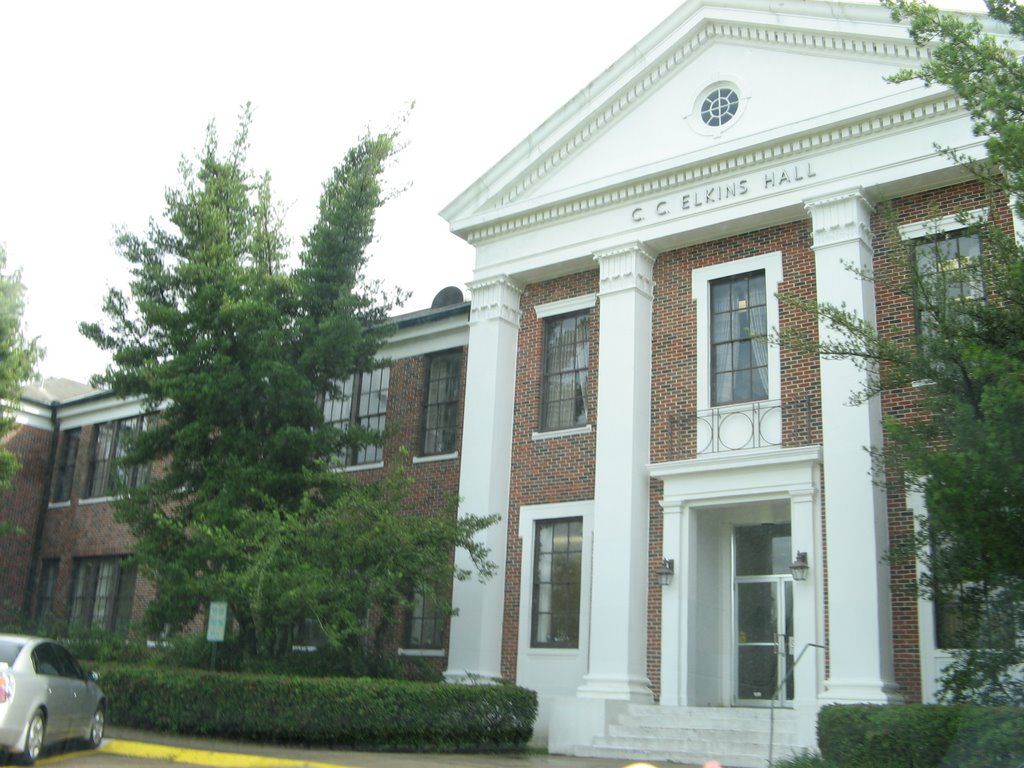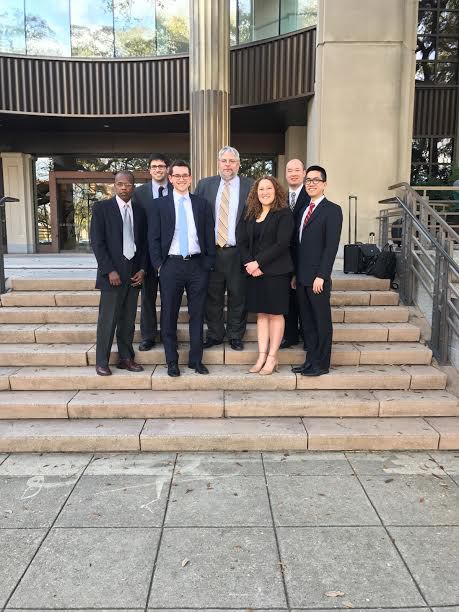
Colleges, students, looking to fill TOPS gap
April 26, 2017OUR VIEW: Go vote
April 26, 2017A federal judge in Baton Rouge was scheduled to hear from expert witnesses defending Louisiana’s use of at-large voting to elect judges in Terrebonne Parish, Wednesday, as a case brought in 2014 by the Terrebonne NAACP and some of its members winds to a close.
The task before U.S. District Judge James Brady will be to determine whether election of all five 32nd Judicial District judges by all voters in the parish violates Section 2 of the U.S. Voting Rights Act, by so diluting minority votes that black people in Terrebonne have no potential of seeing a candidate of their choice elected to the bench. Although the plaintiffs will have to show that a remedy – which would involve drawing of at least one minority subdistrict – is possible, a specific remedy need not be determined at trial.
“For nearly two centuries, Terrebonne Parish has used at-large voting to maintain a racially segregated 32nd Judicial District Court,” said Ryan Haygood, Director of the NAACP Legal Defense Fund’s Political Participation Group. The case is being litigated by the Legal Defense Fund’s attorneys on behalf of the Terrebonne Parish NAACP. “That system for electing judges has guaranteed that Black voters, in spite of having tried in election after election, cannot elect their judges of choice to this court. This lawsuit seeks to bring greater inclusion and democratic legitimacy to Terrebonne Parish’s political process through district-based voting.”
The plaintiffs have expressed confidence that they have proved Terrebonne Parish’s black voters, about 20 percent of the electorate are concentrated geographically within the parish “and consistently vote together to attempt to elect candidates of their choice.”
No opposed black candidate has ever been elected in the 32nd Judicial District under the at-large system. But attorneys for the state maintain that the current system “preserves the link between a district judge’s parish-wide territorial jurisdiction and the area of residency of his or her voters.”
Changing the method of selecting judges “undermines a state’s system of fostering an independent judiciary by holding judges accountable to a broad section of the population, according to briefs filed by attorneys working for Attorney General Jeff Landry. “Given that district judges act alone in exercising their power, use of the Voting Rights Act to create minority subdistricts is perverse.”
Experts expected to be called to the stand Wednesday and Thursday by the state are expected to further its argument that the minority group at issue is not sufficiently large and geographically compact to constitute a majority in a single-member district.
Likewise, the state attorneys maintain that proof is not adequate – despite the insistence by plaintiffs that it is – for white majority voters to act sufficiently as a bloc to defeat the wishes of minority voters.
How long the trial will continue remains a mystery.
In addition to calling at least three experts, whose testimony may be lengthy, the state still may call Gordon Dove, along with former Louisiana state representatives Hunt Downer and Joe Harrison. All three refused to answer certain questions about the legislative history of attempts to establish a minority judicial district in Terrebonne Parish but may be asked similar questions by friendly state attorneys this week. So far, the judge has ruled that this cannot happen, but it is possible that he could reverse himself.
Among the witnesses expected to appear for the state is political consultant Michael Beychok, who was hired to analyze the campaigns of candidates running in six at-large elections in Terrebonne Parish. Beychok was asked to opine on why Black candidates lost in the five elections that were contested.
Beychok examined the campaigns for the: 2014 Houma City Court election; 2014 32nd JDC election; 2014 City Marshal election; 2011 Tax Assessor election; 1994 32nd JDC election; and 1993 Louisiana First Circuit Court of Appeals election.
In his report, Beychok identified three primary factors he deemed most important in the outcome of campaigns, which were the amount of money that the campaigns raised and spent, the amount of time the campaigns spent communicating with voters and the extent to which the campaign recruited volunteers. While agreeing that race is certainly a factor in outcomes that resulted in the election of no minority candidates running with opposition, money, time and prevalence of people to get out the vote were the most important ones.
Another expert, Dr. Ronald Weber, is expected to testify that while Black voters in Terrebonne are sufficiently numerous, they are not geographically compact enough to constitute a majority of the voting age population in a single-member district.
Other witnesses called by the state have given testimony that the plaintiffs are likely to attack when closing arguments are made.
Testimony from sitting judges in Terrebonne appeared to draw some annoyance from Brady due to apparent repetition that he suggested did not go to the meat of the question.
Judge David Arceneaux testified that he opposes creation of a minority subdistrict because doing so would institutionalize racism, despite what the plaintiffs say is a requirement of federal law that majority black districts be created to remedy dilution caused by at-large voting.
Judge Juan Pickett – the district’s only sitting black judge – acknowledged that he offered support on behalf of former judge Timothy Ellender, when the state’s Judicial Council held a disciplinary hearing against the now-retired jurist.
Ellender was sanctioned for wearing a prison jumpsuit, handcuffs and an Afro wig while in blackface at a public place, an issue which drew national attention.
Pickett also testified that his decision to run as a Republican was “just a choice” although the black electorate in Terrebonne is overwhelmingly Democratic.
A plaintiff expert, American University professor Allan Lichtmann, testified that in his opinion “Juan Pickett was a candidate sponsored by the white community in Terrebonne Parish,” based on his examination of campaign contributions and other factors.
Judge Brady has set aside two days this week, Wednesday and Thursday, for the trial to continue. It is not yet known what his calendar will allow should additional days be required.
An attempt to obtain documents relating to how much defense of the case is running Attorney General Jeff Landry’s office as well as the office of the Governor was unsuccessful. Landry’s spokeswoman said the documents are not yet public because they involve ongoing litigation.
Terrebonne Parish is not involved in the litigation despite an attempt to become a defendant that was unsuccessful. But parish attorney Julius Hebert has been in court each day of the trial monitoring the developments. Parish officials are attempting to put together documents related to a request for how much matters relating to the case are costing the parish.









